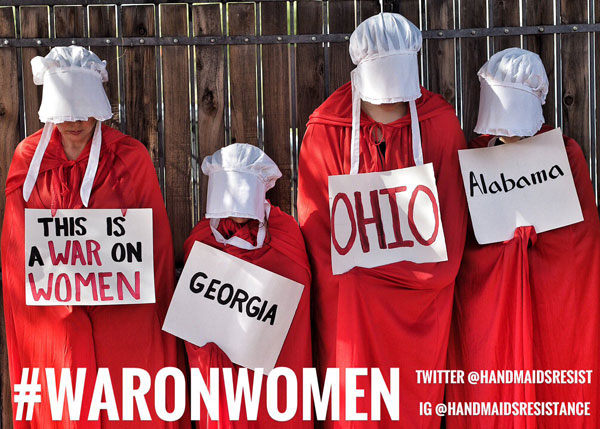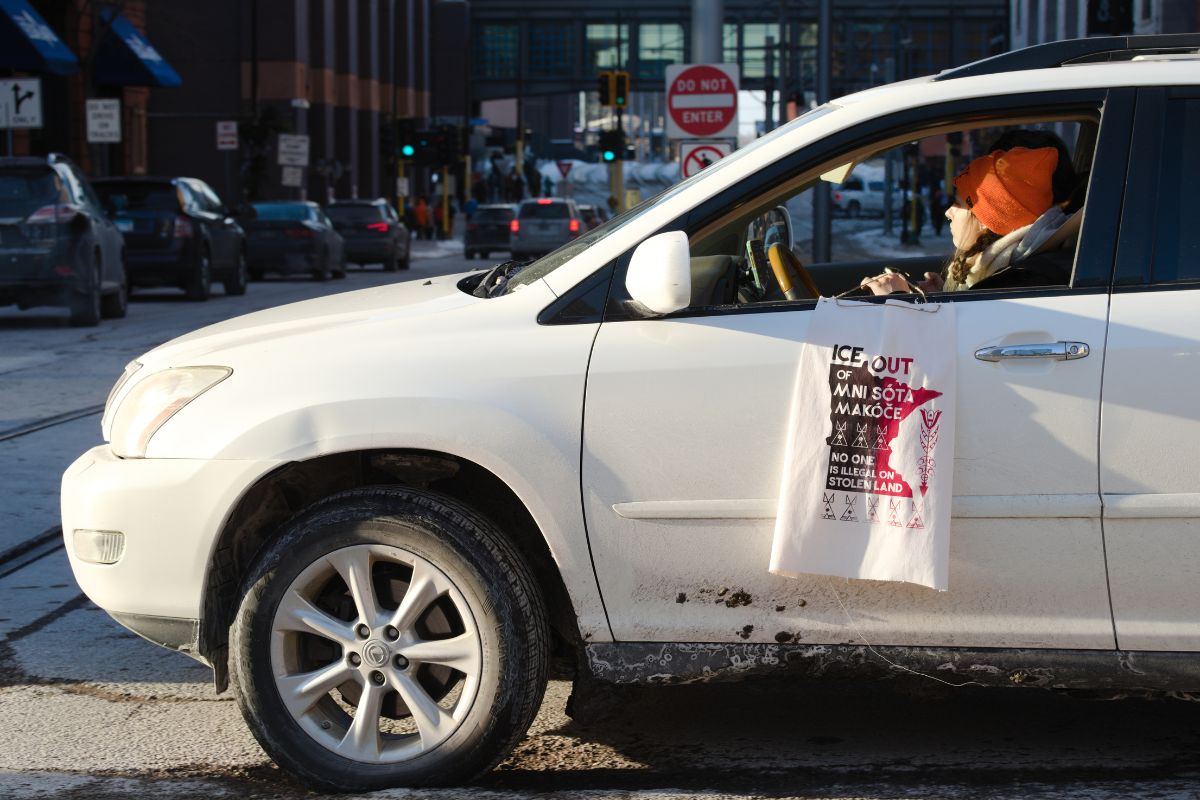
May 22, 2019; Rewire.News
Women and people all across the country have been enraged by the passing of draconian laws restricting abortion access in Georgia, Alabama, Utah, Missouri, and elsewhere. However, some activists in the affected states have been trying to send a message: “Please don’t boycott us!” Or, at least, offering the suggestion that writing off their states as a whole won’t help the women punished by this bill—in fact, targeted reinvestment makes more sense.
NARAL Georgia retweeted a thread that reads,
Instead of smugly tweeting from a distance about how [messed] up Georgia is or how certain industries (that hire a ton of women, [people of color], and queer people) should abandon the state entirely, here’s a thread of resources in [Georgia] that need money now…finally, COME to Georgia and support the thousands and thousands of incredible businesses here owned by women, especially women of color.
Slate’s Christina Cauterucci also thinks boycotting is the wrong fix to this particular problem. “If you believe the North Carolina boycott was an unqualified victory for trans rights,” she writes, “and even if you don’t care that capitalism protects the most powerful players from the worst effects of a boycott, there is no reason to believe that a boycott of Georgia would work in quite the same way.”
Rewire.News quotes other women working in those states. Ree Adcock-Gustin, who worries about boycotts as a blunt instrument to hurt Alabama workers. She also observes that withdrawing investment fits into an elite but common narrative about the supposed backwardness of the Deep South.
I can understand companies wanting to make a statement…money does have a way of getting politicos’ attention when all else fails. But we’ve become a joke. That inhibits the boots-on-the-ground work when people say, “What can you expect from Alabama?” The Alabamian in me says, “Don’t desert us. We’re not that bad.” We have to fight on two different fronts: the ridiculous laws, and then we have to fight people who are supposed to be our allies, who are telling us we aren’t worth it, and they’re leaving.
KC Vick of Hometown Action wrote for Our Future,
Alabama’s law is a direct consequence of progressives’ collective decision to disinvest in the South and cede an entire region to the Far Right…The South I know is the one where people of color, queer and nonbinary folk can come together with country folks, people on the Gulf and in the foothills of Appalachia, to share our strengths, not our prejudices. We come together to take back the spaces we love and change the things that are hurting us.
Sign up for our free newsletters
Subscribe to NPQ's newsletters to have our top stories delivered directly to your inbox.
By signing up, you agree to our privacy policy and terms of use, and to receive messages from NPQ and our partners.
Michele Harmon of the South Alabama Handmaids Resistance Coalition suggests an alternative: pro-choice Alabamians and their allies ought to target specific corporations that have supported the governor and legislators who signed or supported the bill, respectively.
“I’m not talking about small-town businesses, our farmers, or the people who work in the 7-Eleven,” she said, “but rather large national corporations that have bolstered anti-choice lawmakers.… If everyone, particularly women, knows the corporations that are [partly] responsible for taking away our choices, the choices of their mother and daughters, I think they will step up to the plate.”
Executive Director Kimberly Inez McGuire of Unite for Reproductive & Gender Equity (URGE), which works in both Alabama and Georgia, says the idea of a boycott is complicated; she doesn’t “support boycotts that aren’t asked for or didn’t originate in the states.”
In Georgia…during session, there was some discussion of boycotts. But I support the self-determination of local communities. For us, the question is: “What are our young people doing? What are our partners saying?”
Monica Simpson, executive director of the Atlanta-based SisterSong Women of Color Reproductive Justice Collective, invites supporters to head to Georgia. “In fact,” she said, “there’s real excitement about being in Georgia as a central place to do this work. There’s no better place.”
Roula AbiSamra, Georgia organizer for the National Asian Pacific American Women’s Forum (NAPAWF), said her organization does not support an economic action at this time, in part due to impact on Georgia residents. “Economic justice is reproductive justice. NAPAWF cannot support an act that purports to pit one form of justice against another. When it comes to a boycott, we must consider whether it is organized and supported by those who are most impacted by the injustice—such as people of color, people who make low-wage jobs, and those who are striving to make ends meet.”
Many organizers, in fact, say it is time to invest in organizations in the South that are fighting the good fight.
That long-term work, advocates say, means building capacity so groups can challenge decades-long conservative strategy that is coming to roost; better equipping abortion funds in those states and neighboring ones that will likely have to absorb patients; brainstorming how nonprofits without lobbying arms can contribute; tailoring electoral strategy for the upcoming campaign season; and making sure that people know abortion is still legal in Georgia, Alabama, and other states that have passed bans.
URGE’s McGuire comments, “I see the appeal of boycotts.” But she contends that a better path is to “look at building power in the South and Midwest, registering people to vote, supporting reproductive justice organizations. Maybe those aren’t new strategies, but they’ve never been sufficiently resourced,” McGuire said. “In this moment, I would urge people to, rather than thinking about what they step back from, think about what they can step into.”—Ruth McCambridge.












